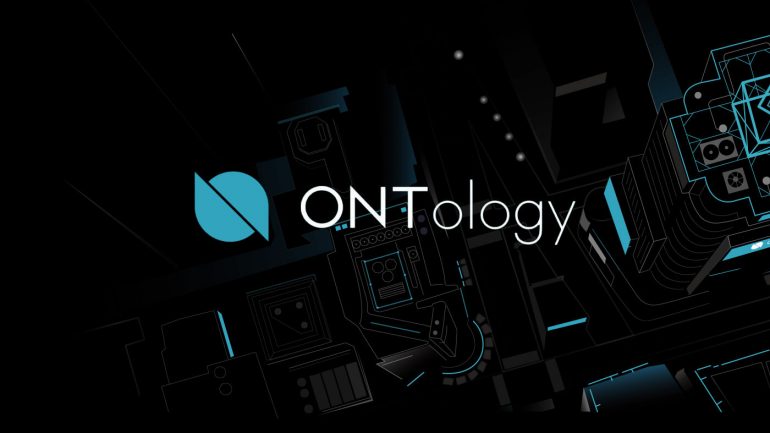
While Ontology (ONT) touts itself as a public blockchain, and it is that, it was created to serve the needs of corporate clients, those who require privacy and aren’t looking to share their data on a private blockchain. This makes Ontology a blockchain-as-a-service (BaaS) platform, which is becoming quite common. Ontology is attempting to provide corporate users with an easy way to benefit from the decentralized and distributed nature of the blockchain.
Ontology (ONT) users will find ID management, smart contracts, a decentralized data exchange, and the ability to create their own digital assets and applications that can be hosted on the Ontology dApp platform. Ontology was created by the same developers who created NEO, which is why you’ll see similarities between the two, such as a dual token system, where ONT is the same as NEO and ONG provides power for the network in the same fashion that GAS powers the NEO network.
Ontology Background
Ontology (ONT) was created by a Chinese tech company called Onchain that’s been involved with the development of distributed network architecture and blockchain solutions for businesses since 2014. Onchain was founded by Da HongFei, who remains the CEO, and Erik Zhang, who holds the position of CTO. These two were also the creators of Antshares in 2016, and this blockchain later became NEO. In the meantime, they also launched Ontology in November 2017.
There are similarities between NEO and Ontology, but there are also distinct differences that make both valid and necessary networks. It should also be pointed out that even though there is overlap between the management and development of the two projects they are separate.
Ontology Technology
What makes Ontology (ONT) unique from other blockchain projects is that it isn’t just a single blockchain, but is a network of blockchains that was designed to make it easy for enterprise users to migrate proprietary systems to distributed ledger technology with minimal downtime and disturbance of the systems involved.
While the main blockchain is public, the other chains attached are like a private space for the enterprise. It gives them the benefits of blockchain technology quickly and easily, without the need to hire a development team or worry about security, which is provided by the main Ontology blockchain.
Besides the differences in the two networks, you’ll also find several similarities in the design of NEO and Ontology, which shouldn’t be surprising considering they share some of the same development team.
One of the key similarities is that they are both smart contract platforms used to host decentralized applications (dApps) and are competitors of the Ethereum network.
Potential Use Cases
Everything discussed above is simply the setup of the company and some theoretical ideas. Here we get into the meat of Ontology (ONT), or how it is necessary for enterprise users, and how it can help the business world.
In order to really understand this, we need to have an understanding of the workings of enterprise business systems. We can do this through an examination of the banking business, which will show how Ontology and NEO will be able to work together and provide serious competition for the likes of Ethereum and other smart contract platforms. In many cases, the banks don’t actually handle many of the loan servicing functions. Instead, they outsource these functions to third-party vendors who specialize in loan servicing.
This is an efficient setup and works well for all those involved. One factor that needs to be addressed however is security and privacy. As you can imagine, a huge organization such as Capital One isn’t going to give an outside vendor full access to their systems.
Ontology dApps
Ontology (ONT) has recently ventured into the world of dApps and currently lists a total of 39 available dApps. Nearly all are game dApps, including a retro Super Mario game. The top games are multi-player online virtual world called ONTLAND and the RPG game HyperDragons Go!
Ontology Team & Community
The Co-founder and Chief architect behind Ontology (ONT) is Jun Li. He has a Bachelor’s degree in Computer Science, Master’s in Communication Engineering and an MBA.
He has a long background in the IT and Fintech sector. For example, he previously provided technical architecture and management support for firms including Infosys as well as the China Financial futures exchange.
In terms of the broader Ontology team, there are over 200 core members that span a number of different technical discipliIn terms of the broader community, Ontology has a pretty strong following. This would make sense given that many people who have backed Neo have a de-facto interest spreading awareness for Ontology.
Over on their Twitter account they have over 80k followers. This is more than we have seen on other cryptocurrency projects. These followers are also engaged and help share announcements on this Twitter account.nes. They are also spread out in offices located in Asia, Europe and North America.
Summary
Ontology (ONT) wants to make it easier for enterprises to move their data to distributed ledger systems, which are considered more secure, immutable and trustless. They also seek to increase trust through the use of blockchain-based IDs. This could save a huge amount of resource that currently go towards guaranteeing trust.
The project certainly has a solid team behind it who understand the challenges facing the stated goals. It’s promising to see that the token has remained in the top 30 cryptocurrencies, and thanks to the ties to NEO it’s entirely probable that Ontology will continue to grow and prosper, taking over the blockchain needs of the business world.



















